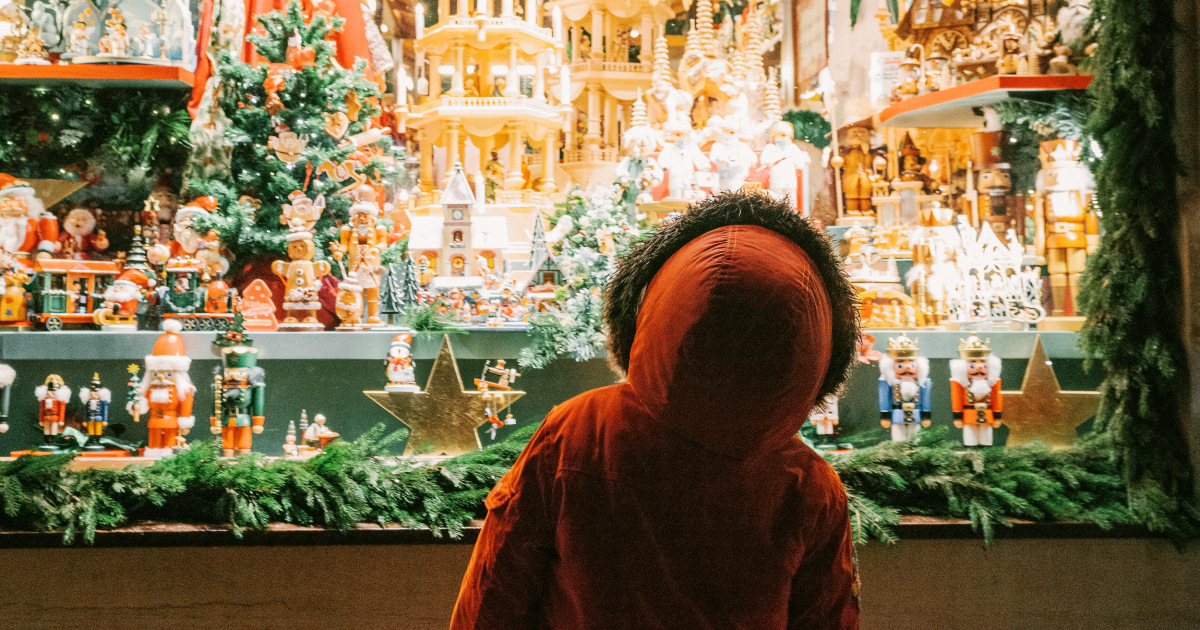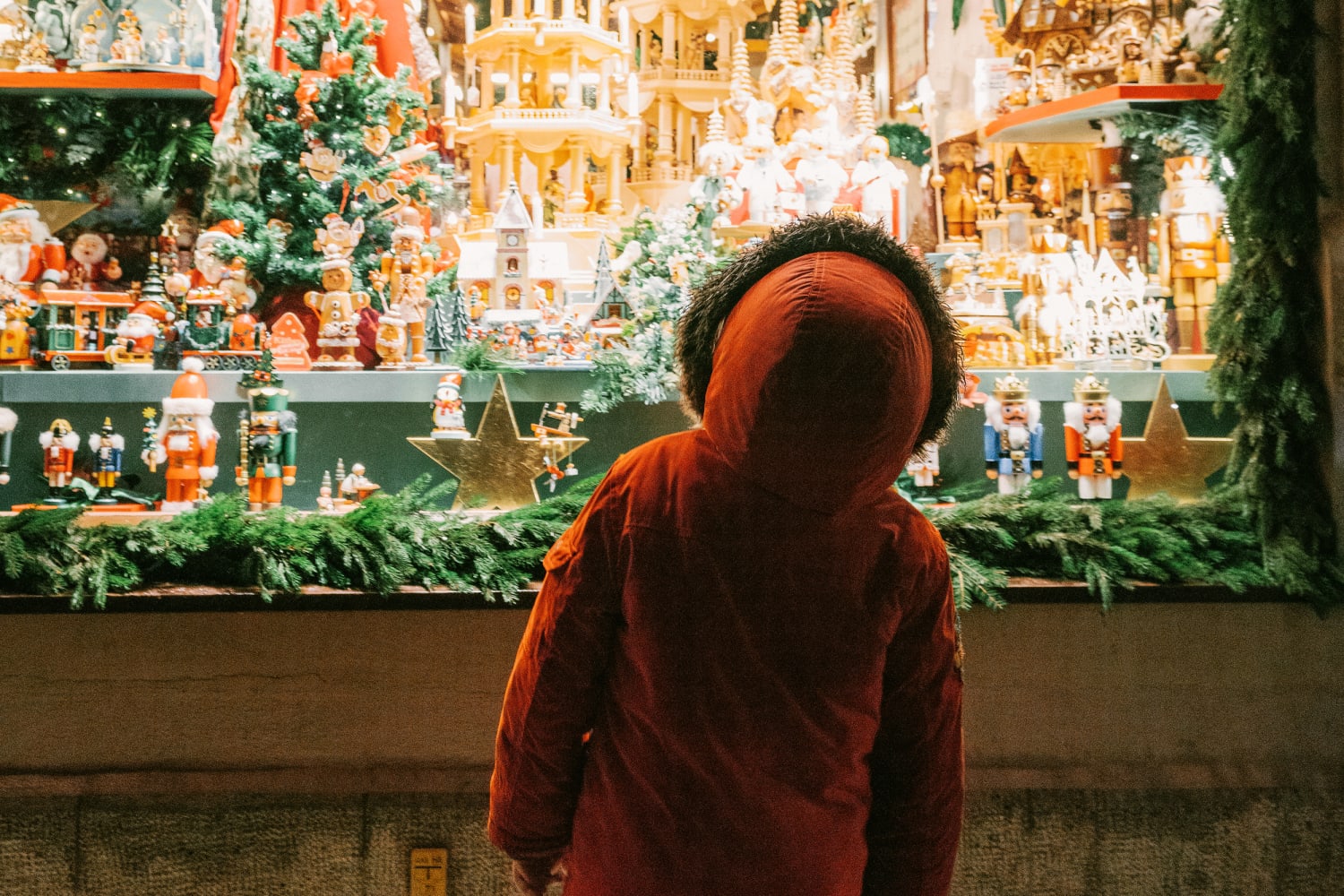
My 12-year-old daughter, Chava Miriam, who is named for her two Jewish immigrant great-grandmothers, doesn’t want to be Jewish anymore. She used to love Sukkot and Hanukkah; now she wants Christmas and feels cheated. She says she hopes to marry someone who isn’t Jewish and only celebrate their holidays — because the message I gave her was that she couldn’t have both.
Now that I’m in my 40s, it’s so much easier to step back and realize I shouldn’t have been so afraid of a tree.
When I excluded Christmas from our house, I didn’t just eliminate my husband’s childhood traditions and holidays. I caused one of my daughters to reject the very heritage I worked so hard to ensure she’d never question. By stressing the idea of a singular identity, I inadvertently sent a message of noninclusion.
I grew up culturally Jewish but not religious, baking cinnamon-and-nut rugelach with my Yiddish-speaking Ukrainian nana in her tiny Queens kitchen. I ate franks with mustard and kraut at the local deli with my father in the Bronx. We lit the menorah on Hanukkah, substituted matza for bread on Passover, ate pomegranate seeds and brisket on Rosh Hashana.
I never gave a second thought to the lack of a Christmas tree in our house or felt like the only kid on the block without one. I just felt Jewish, whatever that meant. It was my identity and I never questioned it, until my brother married a non-Jewish girl when I was 20 and I myself got engaged shortly after.
From the beginning of their relationship, my brother’s future wife challenged the accuracy of our family’s Judaism — I’ve searched for many words to encapsulate the feeling she provoked in me, and that’s the best one I can come up with. It was a feeling that we weren’t proper Jews, that our execution of detail wasn’t correct enough for her.
She didn’t dispute the legitimacy of our Judaism — how could she? Our father’s parents fled pogroms and Cossacks to come here for religious freedom and safety. My grandfather helped build the neighborhood synagogue. Our mother had Christian roots but had undergone a strictly Orthodox conversion that stood up under Hassidic examination.
Our knowledge and practice, on the other hand, my sister-in-law viewed as fair game. Maybe she questioned our abbreviated seders at Passover because she wanted to learn more, because she was trying to adopt our customs and blend into our family, but her comments always felt pointed and insulting, and they made me feel vulnerable about an identity I’d always cherished. It was especially painful for me because my Jewish heritage was what connected me to my father’s family.
I had questioned almost everything else about myself in my 20 years of existence until that point — my intellect, attractiveness, sexual orientation, value as a person. But my Jewishness was a part of me, the same as a limb, and I would no sooner question the foot attached to my leg.
When I got engaged, I suddenly felt an overwhelming need to protect and preserve that Jewishness — and more than anything, to get it right, to be an accurate Jew. I worried my lack of knowledge somehow made me less Jewish and in turn would make my future kids feel the same way. I saw my impending marriage as a chance to start fresh.
My fiance had been raised in an agnostic home celebrating Christmas and Easter with chocolate bunnies, trees and gifts, but no religion. His father was an atheist and his mother believed in all kinds of gods. He celebrated what he considered to be universal nonreligious holidays with the vague knowledge that his great-grandmother on his mother’s side may have been Jewish.
When it came time for our own wedding, I latched onto his mysterious Jewish ancestry, sending my newly religious father’s Orthodox rabbi on a search to see if it held water. It turned out the rumors of the Jewish grandmother were true, and the next thing my borderline atheist fiancé knew, he was being welcomed into the tribe, called up to the Torah and given a Jewish name.
After that, I threw myself into getting everything about being Jewish just right. I planned a fully Orthodox wedding complete with all the traditions: immersing myself in the mikvah, the Jewish ritual bath, in preparation for the ceremony; segregating the dancing of men and women; and covering myself from head to toe in a satin dress to comply with the rules of modesty.
I was determined to build a home and create a family whose identity was so firmly rooted in Judaism that no one could ever shake it. I put my five children into Jewish day school, baked challah on Fridays, fried my own jelly donuts on Hanukkah and locked my husband’s non-Jewish heritage into a box and buried it away.
These Jewish traditions were foreign to him and he never felt like they belonged to him, despite his Jewish roots, but he embraced them out of solidarity with me and out of deep respect for the culture and history that his children were being born into. Giving up cheeseburgers and electricity on the weekend was off the table for him, so we didn’t even consider keeping kosher or observing Shabbat restrictions. But having a Christmas tree was unthinkable to me, so giving up Christmas was our compromise.
Four of my children now identify solely as Jews, feel pride in being Jewish and are connected to the larger community, just as I’d wanted. But when Chava Miriam, my fourth child, left the bubble of her Jewish school to switch to public school two years ago, she began to question the singular identity I presented her with. She knew her grandparents celebrated Christmas and demanded to know why we didn’t, too.
I never wanted anyone to be able to make my children feel the way I felt when my sister in-law attacked my Jewish identity; I wanted them to feel like they always belonged in the Jewish community. But I also didn’t want to cut them off from half their heritage. Now that I’m older, I realize what I want more than anything is for my children to embark on their adult lives free from my burdens.
I caused one of my daughters to reject the very heritage I worked so hard to ensure she’d never question.
I want them to feel pride in who they are, love themselves and celebrate whatever holidays make them feel good. I want them to know no one can take their heritage from them, and it’s okay to honor and embrace a partner’s traditions without losing their own.
When I got married at 23 and pregnant with my first child at 25, I only saw the world through the lens of my limited experience, not for all the possibilities that it presented. Now that I’m in my 40s, it’s so much easier to step back and realize I shouldn’t have been so afraid of a tree. I shouldn’t have cast aside my husband’s traditions just because he had a Jewish great-grandmother. He has never identified as Jewish, and it turns out he misses Christmas celebrations as much as our daughter longs for them.
I want my children to see the world through a wide lens of endless possibility, so if my daughter wants to celebrate Christmas and Hanukkah, I will now happily welcome both in our home.
Source: | This article originally belongs to Nbcnews.com









